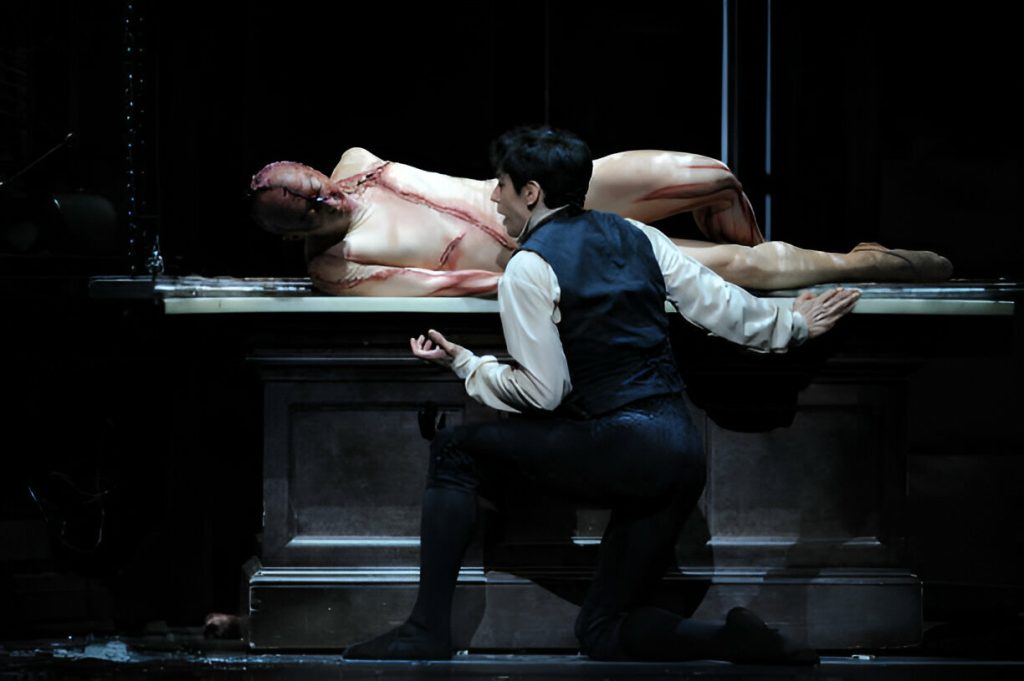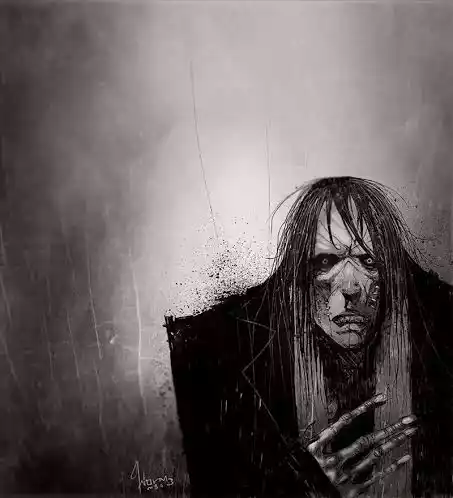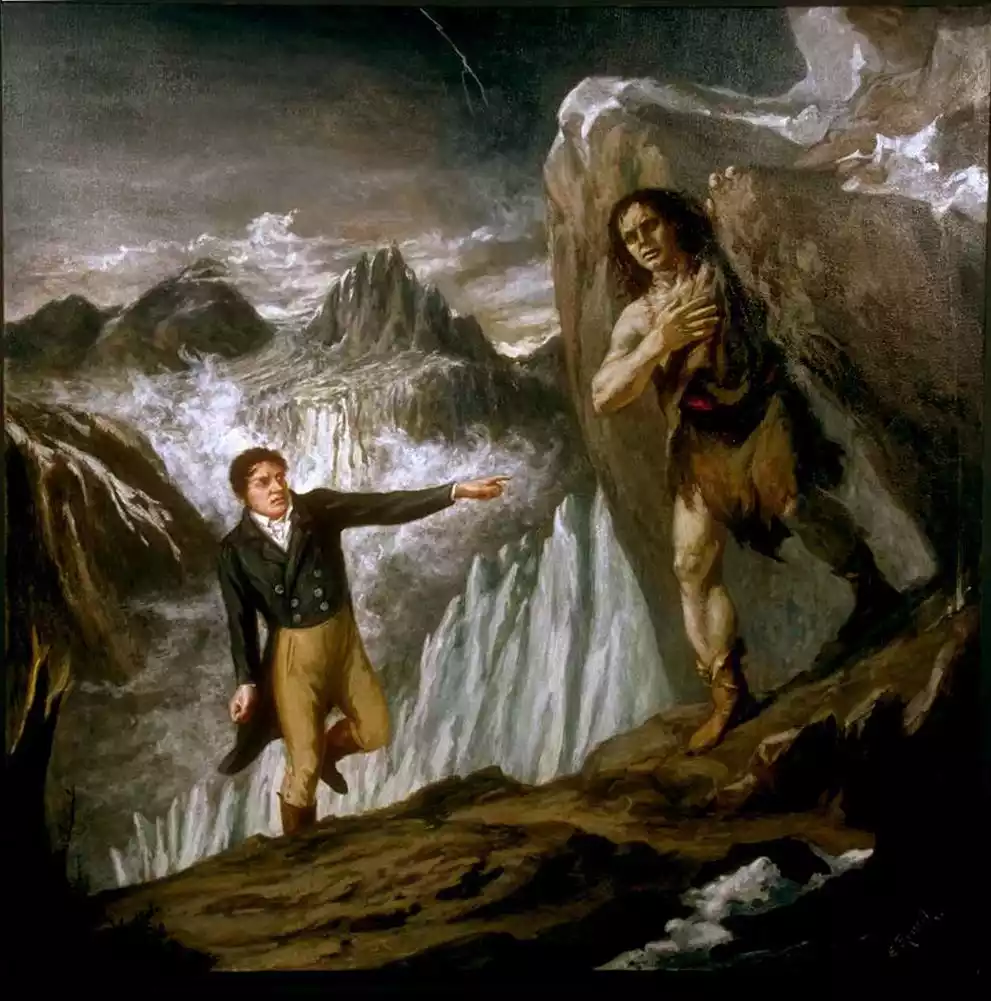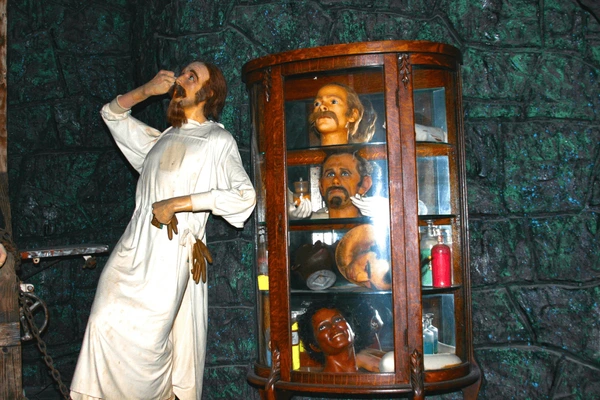What Was Victor Frankenstein's Motivation For Creating Life: Exploring Complex Motivations

Victor Frankenstein is the main character in Mary Shelley’s novel, Frankenstein. He is well known in literary history. His wish to create life comes from scientific curiosity, personal loss, and a desire for fame. This ambition leads him into tragedy. Why did he create the monster? What motivated him? Let’s explore Victor’s drive to overcome death, prove his brilliance, and discover a way to live forever.
Table of Contents
Toggle
The question of Victor Frankenstein’s decision to create life has captivated many readers. Frankenstein, a novel by Mary Shelley, is not merely a horror story. It dives deep into human ambition and the risks of pushing limits. The novel’s subtitle, The Modern Prometheus, reveals a more profound meaning.
In ancient Greek mythology, Prometheus is a Titan who brought fire to humans. He faced severe punishment for challenging the gods. Similarly, Victor Frankenstein empowers humanity to bring life from death. His tragic journey and the pain of his creation reflect the endless suffering of Prometheus. This serves as a strong warning about ambition without a moral guide.
Shelley’s writing stands out for its depth. She created a layered story that lets readers see events from different viewpoints. The novel starts with letters from Captain Robert Walton, drawing readers into the story. Shelley blends Gothic horror with early science fiction in a way that feels fresh and engaging.
This was a major achievement that significantly contributed to shaping the science-fiction genre. The novel remains important because it asks big questions. It explores scientific ethics, what it means to be human, and the risks of “playing God.” The book prompts us to consider where progress ends and danger begins.
Further explore—selected 10 motivational books to keep you always inspired
1. The Ambition for Knowledge and Power
Victor Frankenstein wanted to create life. His ambition was intense and never waned. Since he was young, he has always wanted more than the ordinary. He aimed to accomplish something great, something that would distinguish him in the history of science. He viewed himself as a trailblazer, ready to reveal the world’s greatest secrets of creation. This drive burned inside him, pushing him forward toward his goal.
A Scientist’s Desire for Discovery
Victor’s journey came from a strong and personal curiosity. He felt a strong urge to explore the limits of life and death. He viewed the world as a dark place. He believed he could illuminate the world with positivity. He aimed to be the first to achieve what no one else had accomplished, to grasp the basic principle of life itself. His obsession went beyond simply understanding the world. He wanted to show his brilliance and create a legacy that people would remember for all time.
This quest for knowledge didn’t happen overnight. The descent was slow and steady. The novel reveals how Victor’s desire for knowledge became an overwhelming obsession.
For almost two years, he poured himself into his project. He ignored his health, friends, and family. His obsession drove him beyond all reasonable limits. It was a clear decline from a noble goal to a selfish, reckless act. He became so focused that he forgot about everything else important in his life.
2. Overcoming death and chasing glory.
Victor had a strong desire for glory. It drove him in many ways. He believed his creation would be a huge success, ensuring he would be remembered in history. His huge ego led him to believe in a “new species [that] would bless me as its creator and source.” He dreamed of being a god. He wanted to create a new race of beings. They would owe their lives to him and worship him for it.
The pursuit of fame and power can be a risky endeavor. It has its ups and downs. It drove him to make a scientific breakthrough. However, it also led him to overlook the moral implications of his actions.
The emotions and deeper needs of what he had created were not on his mind. Victor did not consider the emotions or deeper needs of his creation. He focused on building the body but ignored the experience of life itself.
His pride made him believe he could create something perfect. When the creature came to life, Victor was disgusted by its appearance. This moment shows the real cost of ambition without ethics. If we explore his personal life, we see his choices went beyond just scientific curiosity. They were personal and tied to his experiences with grief and loss. The novel reveals that his obsession with defeating death stemmed from a deep personal tragedy.
The Trigger of a Mother’s Passing
Victor’s life changed dramatically when his mother, Caroline, passed away. Victor was very close to his family. His mother’s death felt so unfair and unjust to him. This event seemed like a deep, unfixable wrong. It pushed Victor into his intense studies. Mary Shelley knew loss well. She faced the deaths of those she loved. This deep pain is reflected in Victor’s character. Victor’s personal tragedy ignited his obsession with life and death. What started as a simple curiosity transformed into a desperate, all-consuming quest.
3.Victor’s Early Education and Influences
Victor Frankenstein’s early education was key to shaping his interests and ambitions. He showed a strong interest in science and natural philosophy from a young age.
Alphonse Frankenstein, his father, nurtured his curiosity. He gave him books and resources that sparked his love for learning. Victor discovered the works of alchemists like Paracelsus and Albertus Magnus early on. This newfound passion ignited his curiosity about life’s mysteries and the possibilities of scientific discovery. These early influences shaped his future experiments and dreams.
The Influence of Professors and Campus Life
Victor’s time at the University of Ingolstadt changed his life forever. At the university, he met influential professors such as M. Waldman and M. Krempe. They showed Victor the latest advancements in science and inspired his quest for knowledge.
Waldman had a significant impact on Victor’s scientific aspirations. He encouraged him to explore and expand the limits of what we know.
Victor found everything he needed at the university. The resources and support helped him carry out his experiments. Victor found himself among people who shared his interests. The environment buzzed with curiosity. So, we can say, his surroundings inspired him to pursue his groundbreaking experiment.
Making life is a way to mourn
Victor’s project turned into a battle against the end of life. He aimed to conquer death to demonstrate that it was not an invincible foe. He created it to fill the void his mother’s death left behind. It was a way to find closure for his pain. He wanted to achieve a “victory” over his loss.
The novel shows the risks of ignoring grief. Unaddressed pain can lead to larger issues. Victor avoided his feelings and chose to focus on his work instead.
He acted recklessly to escape pain. When he finally brought the creature to life, he was horrified. Its appearance shocked him, but even more, it symbolized death and decay. These were the very things he had been trying to escape. He instantly rejected his creation, and in doing so, he rejected his own unhealed grief. The story illustrates that unexpressed grief can become a powerful and destructive force, causing significant harm to both the individual and those around them
4. How Other Scientists and Philosophers Influenced His Ideas

Pic credit: GettyImages
Indeed, the world around Victor shaped his dreams. He was a man shaped by his era, marked by great shifts in science and philosophy. His journey through life was influenced by both old beliefs and fresh, thrilling discoveries.
Whispers from Ancient Alchemists
When he was a young boy, Victor was captivated by the writings of ancient alchemists, such as Cornelius Agrippa and Paracelsus. These thinkers sought the “Elixir of Life” in hopes of achieving immortality. Even though his university professors called these old ideas “sad trash,” Victor’s early interest in them set the stage for his future work. Early on, he held the belief that secrets awaited discovery. He thought anyone could accomplish what others deemed impossible.
The Background of a Scientific Revolution
The novel was created during the period of the Industrial Revolution. This was an era of rapid advancements in science and technology. We come across ideas like “galvanism.” Scientists studied how to use electricity to stimulate dead muscles into movement. It was a fascinating area of research. Shelley knew about these experiments. They made her story feel like it could really happen. The novel captures the fears people felt about science overstepping its bounds. It explores a world where the laws of nature could be twisted and shattered.
Science and discovery played a crucial role in the 18th century. This was a time of great change and exploration. New ideas emerged, challenging old beliefs. Thinkers and inventors pushed boundaries. They sought to understand the world in new ways. This era laid the groundwork for modern science. It was a period of curiosity and innovation.
The 18th century brought amazing scientific discoveries. These breakthroughs challenged old ideas and pushed the limits of what we know about the world. Scientists like Luigi Galvani, who explored bioelectricity, and Erasmus Darwin, who wondered about the origins of life, inspired many people, including Victor Frankenstein.
Victor was captivated by these scientific breakthroughs. He wanted to see if he could create life. He found galvanism fascinating. It suggested that electricity could make muscles move, even in dead tissue. His experiments focused on the exciting possibility of using electricity to bring life back. This idea captivated him deeply.
Elizabeth’s Impact and Family Expectations
Victor’s bond with Elizabeth Lavenza, his adopted sister and later fiancée, greatly influenced his motivations. Elizabeth’s constant support and love gave Victor a feeling of stability and purpose. Yet, the expectations from his family and society pushed him to strive for greatness.
Victor wanted to meet his family’s expectations. He aimed to make them proud. This drive pushed him to chase scientific discovery with determination. He often felt the pressure of expectations. This made him focus more on his experiments than on his personal relationships. As a result, he experienced loneliness and guilt.
A Reflection: The Importance of Robert Walton
The story unfolds through the letters written by Robert Walton. Walton is an explorer who dreams of reaching the North Pole. He and Victor Frankenstein are two sides of the same coin. They both aim to accomplish something remarkable that no one else has done. They are fueled by ambition and a profound loneliness. They believe no one truly gets their unique passion
Walton plays an important role in the story. He is an improved version of Victor because he learns a valuable lesson from Victor’s tragic tale. Victor warns him, “You chase knowledge and wisdom, just as I once did. I truly hope that getting what you wish for doesn’t turn into a serpent that stings you, like it did for me.” Victor’s tale makes Walton change course. He saves his crew from a similar doom.
Walton’s decision highlights the novel’s main point: having knowledge without wisdom can lead to disaster.
The book offers a strong message about the importance of scientific responsibility. Victor craved the glory of creating something great, but he shied away from the responsibilities that came with it. This is the main issue.
Victor’s failure to foresee the future and his disregard for potential consequences highlight the dangers of scientific progress without a moral framework. The novel emphasizes the importance of scientists considering the ethical implications of their actions. They should be ready to take full responsibility for what they bring into the world.
5. The Impact of Romanticism
The Romantic Movement and Its Influence on Victor
The Romantic movement began in the late 1700s and early 1800s. It focused on deep emotions, personal expression, and the breathtaking beauty of nature. This change in culture greatly influenced Victor Frankenstein’s motivations and actions. The Romantic ideals of exploring the unknown and pushing the limits of human experience fueled Victor’s dreams.
In a word, Nature captivated Victor. He wanted to uncover its secrets. This passion was shaped by the Romantic focus on beauty and mystery. The Romantic movement celebrated individualism and personal expression. This inspired Victor in his quest for scientific discovery. He wanted to achieve something extraordinary and create a lasting legacy.
The Clash of Nature and Science
“Frankenstein” explores the clash between nature and science. Victor’s experiments aimed to control nature, but they ended in tragedy. The story shows the risks of trying to control nature. It also emphasizes the moral duties that come with scientific progress.
Victor’s journey is a warning about what can happen when we push the boundaries of science. It shows us why we must respect the natural world. The clash between nature and science highlights the tough ethical questions that come with scientific discovery. It shows us how important it is to act responsibly while seeking knowledge.
6. The Unexpected Outcomes of Creation
The moment of creation was meant to be a victory. It turned out to be a complete disaster. Victor watched as his long-held dream transformed into a nightmare before him. He understood the terrible mistake he had made and felt a wave of regret wash over him.

The Consequences and the Feeling of Regret
When the creature’s dull yellow eye opened, Victor felt a wave of horror and disgust wash over him. His beautiful dream, held for two years, disappeared. He spent a lot of time picking and assembling body parts, but in the end, it was just a “wretch”. He couldn’t cope with the huge gap between his perfect dreams and the ugly truth.
The Neglect of a “Dirty Creation”
Victor ran away from what he had made. He couldn’t bear the consequences of his actions. He rejected it right away. Shock, fear, and shame fueled his response. Victor believed he was all-powerful, yet he didn’t show the love one would expect from a true God. He just ran away from what he had worked so hard to build. This act of abandonment sets the whole tragedy in motion. It leaves a new, innocent being completely alone in a harsh world.
The Monster’s Rejection and What Follows
The monster started its life feeling unwanted. He was born and untouched, but everyone he encountered quickly labeled him a monster. His creator’s rejection left him feeling completely alone and lost. He struggled to find his purpose. The monster seeks revenge due to its profound loneliness and feelings of betrayal. He is well-known for saying, “I am malicious because I am miserable.” The monster’s tale reveals how a lack of kindness and love can transform an innocent soul into one filled with rage.
7.What does Frankenstein discover?

Pic credit: Shutterstock
As the story unfolds, Victor confronts the devastating consequences of his actions. He begins to realize the risks of his actions. His life turns into a long, sorrowful tale of what happens when ambition goes too far.
Victor’s realization of ambition without limits.
Victor’s path of suffering brings him to a heartbreaking truth. He realizes that his failure to plan caused pain for himself and those he cared about. He understands the moral implications of attempting to “play God.” His ambition was like a serpent, ready to sting him. He realizes he should have taken responsibility for what he created. He warns Walton to find happiness in peace and to steer clear of ambition.
The Last Judgment and the Creature’s Destiny
The ending of the novel is heartbreaking for both characters. Victor dies feeling defeated, yet he continues to chase the monster. The monster appears after Victor dies, revealing his true emotions. He feels unsatisfied with his revenge. He feels sad and alone. Regret fills his heart. He vows to end his life. With Victor gone, he feels lost and without purpose.
The ending shows a surprising contradiction. Victor dies with a warning on his lips. His final words are, “Yet why do I say this?”
I have faced disappointment in these hopes, but perhaps someone else will succeed. Please take it back.
This shows he hasn’t completely grasped his lesson. He stays proud, even in death. His last act is one of revenge, not forgiveness. The monster, however, has a strong ability to grow.
He understands that his quest for revenge has not given him peace. Instead, he feels a deep sadness for his creator, who is now gone. This prompts the reader to wonder who the true monster really is. The book shows that the most human and compassionate person can be redeemed.
8.The Monster’s Perspective: A Sympathetic View
While Victor Frankenstein is often seen as the protagonist, the monster in Frankenstein is, in many ways, the most sympathetic character. His tragic story speaks to the powerful need for compassion and understanding. Imagine your creator creating you, abandoning you, and casting you out into the world without love or guidance. The monster’s pain and isolation echo the struggles of anyone who has ever felt rejected or unloved. His journey, marked by sorrow and yearning, prompts us to reflect on the power of empathy and the consequences of neglect.
The Monster’s Humanity
At the start, the monster is like a blank canvas, free from any ill intentions. He is innocent, yearning for the love and acceptance every human craves. But when he is cruelly rejected by Victor, his creator, and by society, his innocence fades. The monster’s anger grows as he feels increasingly isolated, eventually turning him into a being consumed by vengeance. His transformation shows us how neglect and rejection can turn someone’s heart dark and twisted. What starts as a desire for connection becomes an unstoppable need for revenge, all because of the deep pain he feels from being abandoned.
The Monster’s Death
In the end, the monster kills Victor Frankenstein, but not because he is evil; rather, it is because Victor Frankenstein is evil. Instead, his actions stem from the intense sorrow and isolation he has felt throughout his life. This isn’t a calculated act of malice—it’s a tragic response to years of loneliness and heartache. Victor’s death is the final act of pain that has built up inside him, a result of years of rejection, abandonment, and a desperate need for revenge. It’s heartbreaking when we realize that the monster was only ever seeking the acceptance he was never given.
Does the Monster Kill Frankenstein?
Yes, the monster does kill Victor in the end, but it’s not out of pure hatred. Rather, this tragic act is born from the monster’s overwhelming sorrow and thirst for revenge against the person who abandoned him. Throughout the novel, we see how Victor’s refusal to acknowledge his creation’s humanity led to the monster’s spiral into despair. In his mind, killing Victor is the only way to escape the emotional torment he’s been suffering for so long.
9. Victor Frankenstein and Robert Walton: Two Sides of the Same Coin
Victor Frankenstein and Robert Walton are more alike than they may appear on the surface. Although their journeys are different, they both share a burning ambition and a desire to explore the unknown, regardless of the cost. While Walton looks up to Victor as a genius, he also sees the dangers in Victor’s pursuit of knowledge, providing a glimpse of what could happen if Walton follows too closely in his footsteps.
How Does Robert Walton Feel About Victor Frankenstein?
Walton is fascinated by Victor’s ambition and intelligence. He sees Victor as a kindred spirit, someone who shares his drive to push the boundaries of human knowledge and achievement. At the same time, Walton is wary of Victor’s reckless pursuit of glory. He recognizes the dangers of this kind of ambition and sees Victor as a warning—someone who has gone too far and paid the price for it. Walton’s admiration for Victor is mixed with caution, a reflection of his own fears about what might happen if he takes Victor’s path.
What Do Victor and Walton Have in Common?
Both Victor and Walton are driven by a desire to discover, to achieve, and to claim glory. They are relentless in their ambitions, willing to sacrifice everything to achieve greatness. However, in their pursuit of knowledge, neither of them takes the time to consider the consequences of their actions. They ignore the moral implications of their work, focusing only on the thrill of discovery, which ultimately leads them both down a path of destruction.
How Are Walton’s and Frankenstein’s Stories Alike?
The stories of Walton and Frankenstein are eerily similar. Both men chase ambitious dreams, driven by the conviction that they can achieve something great. But they fail to see the ethical costs of their pursuits. In the end, their unyielding ambitions lead to personal tragedy. Walton’s story is a poignant reflection of the dangers of unchecked ambition, illustrating how such a desire can quickly spiral out of control and leave destruction in its wake.
10. Themes and Moral Lessons in Frankenstein
At its core, Frankenstein isn’t just about the dangers of science gone wrong. It’s a deeply human story about ambition, responsibility, and the need for compassion. The novel teaches us that the pursuit of knowledge and greatness must be tempered with responsibility and understanding.
The Dangers of Unchecked Ambition
Victor’s blind ambition drives him to create the monster, but he is so focused on his goal that he fails to foresee the destruction it will bring. His obsession with discovery blinds him to the moral and emotional consequences of his actions, and ultimately, it’s this lack of foresight that leads to his downfall. Frankenstein warns us that when we pursue our ambitions without considering the consequences, we risk losing everything.
Victor’s story serves as a strong reminder. Ambition can lead us astray if we lack a moral compass. He dreamed of being a creator, but he would rather not take on the role of a parent. He refused to take responsibility for his “filthy creation,” and it brought death and destruction. The novel reveals that our choices come with consequences. We must be ready to face them, even when it’s tough.
Moral Responsibilities of Creators
Victor’s failure to take responsibility for the monster’s existence highlights an important moral lesson. When we create something, we must accept the responsibility that comes with it. The impact of our actions—whether good or bad—affects those around us, and we must be prepared to face those consequences. Victor’s neglect of his creation shows that being a creator isn’t just about the act of making something; it’s about owning the results and considering the lives we touch in the process.
The Human Need for Compassion
The monster’s heartbreaking journey underscores a universal truth: we all need love and compassion. His desperate search for acceptance is something we can all relate to. Whether we’re young or old, we all have a deep need to feel seen, heard, and loved. The monster’s story is a reminder that empathy is vital to our well-being, and without it, we risk turning away those who need us the most.
The novel is powerful because it explores themes that never fade. Victor’s story mirrors our own experiences. The story prompts us to reflect on our choices and the responsibilities we bear.
People crave compassion. It connects us. We all want to feel understood and cared for. Compassion makes life richer. It brings us together in times of difficulty. Everyone deserves kindness. It’s a simple yet powerful force. Let’s embrace it.
The monster’s tale reveals a deep longing for love and acceptance. It’s truly heartbreaking. He started off good, but rejection and cruelty turned him into a “fiend”. The story reveals that love and empathy are essential for us to flourish. If we lose it, we might turn into monsters too. The monster starts as an innocent and sensitive creature. His journey turns tragic as he becomes a vengeful killer. This change stems from his profound loneliness and isolation.
Let’s examine the two main characters who demonstrate ambition: Victor Frankenstein and Robert Walton. They both highlight the novel’s central theme of ambition. Their stories draw a strong connection, emphasizing the novel’s important lesson.
| Character | Victor Frankenstein | Robert Walton |
| Motivation | Scientific fame and glory | Geographical discovery and fame |
| Ambition | To conquer death and create life | To conquer the Arctic and explore unknown lands |
| Outcome | Tragedy and death for himself and his loved ones | Survival and a return home |
| Lesson Learned | Too late, leading to his demise | In time, leading to his salvation |
Walton’s story directly contrasts with Victor’s in the novel. Walton learns from Victor’s tragic mistakes. This makes him a “better version” of the man he meets. The table reveals that both men shared similar goals and were fueled by the same ambition. However, only one had the insight to stop before it was too late.
11. Modern Interpretations and Relevance
Modern Views on Victor’s Motivations
Today, we explore Victor Frankenstein’s motivations. They lead us into a complex world of ethics and morality. Today, people look at how his desire for knowledge and power drove him to make risky choices. They show how unchecked ambition can quickly get out of hand and cause harm, even when the intentions are good at the start. Victor’s story serves as a warning.
It shows us how easily progress can turn into destruction. It reveals how scientific curiosity, fueled by ego or unchecked ambition, can lead to terrible outcomes. His actions come from a wish to help people. Yet, they show how the quest for greatness can sometimes blind us to the importance of responsibility and care.
Frankenstein still matters today. Its themes resonate with our current scientific debates. The story raises questions about ethics and responsibility. As we push boundaries in science, we must consider the consequences. This classic tale reminds us to think carefully about our creations.
The Relevance of Frankenstein in Today’s Scientific Landscape
The significance of Frankenstein’s story remains unchanged from its original telling. In fact, it feels even more relevant now. Advancements in genetics, artificial intelligence, and biotechnology are challenging our boundaries. We are constantly discovering new possibilities. Like Victor Frankenstein, we find ourselves questioning, “Is this the right thing to do?”
His story raises important questions about responsibility, ethics, and the potential consequences of ambitious discoveries. We must remember these as we innovate and create. His journey shows us that with great power comes even greater responsibility. As we explore the mysteries of science, we must tread carefully and think about the potential consequences of our actions.
Final Thought: Thinking About the Reasons for Creation
Ultimately, Victor Frankenstein’s motivations were complex and multifaceted. They were a mix of personal struggles and a strong wish for success. He spotted an opportunity to achieve something unique and couldn’t help but give in to the allure. His tragedy shows us the importance of considering the full impact of our actions, particularly in the field of science. The novel serves as a strong and lasting reminder. It warns us about chasing knowledge without a solid moral guide. This story prompts us to consider what it means to be a creator. It challenges us to consider our responsibilities toward what we deserve.
FAQs
Why Does Victor Frankenstein Create the Monster?
Victor Frankenstein creates the monster to conquer death and prove his genius.
What Was Victor Frankenstein’s Strongest Motivation for Creating Life?
Victor was driven by a combination of grief, ambition, and a desire for eternal glory.
Why Does Frankenstein Abandon the Monster?
Victor abandons the monster because of his horror at its appearance and his inability to handle the consequences.
How Does Frankenstein End?
The novel ends with Victor dying in pursuit of the monster, who eventually takes his own life.
Does the Monster Kill Frankenstein?
Yes, the monster kills Victor in a tragic act of revenge and despair.


